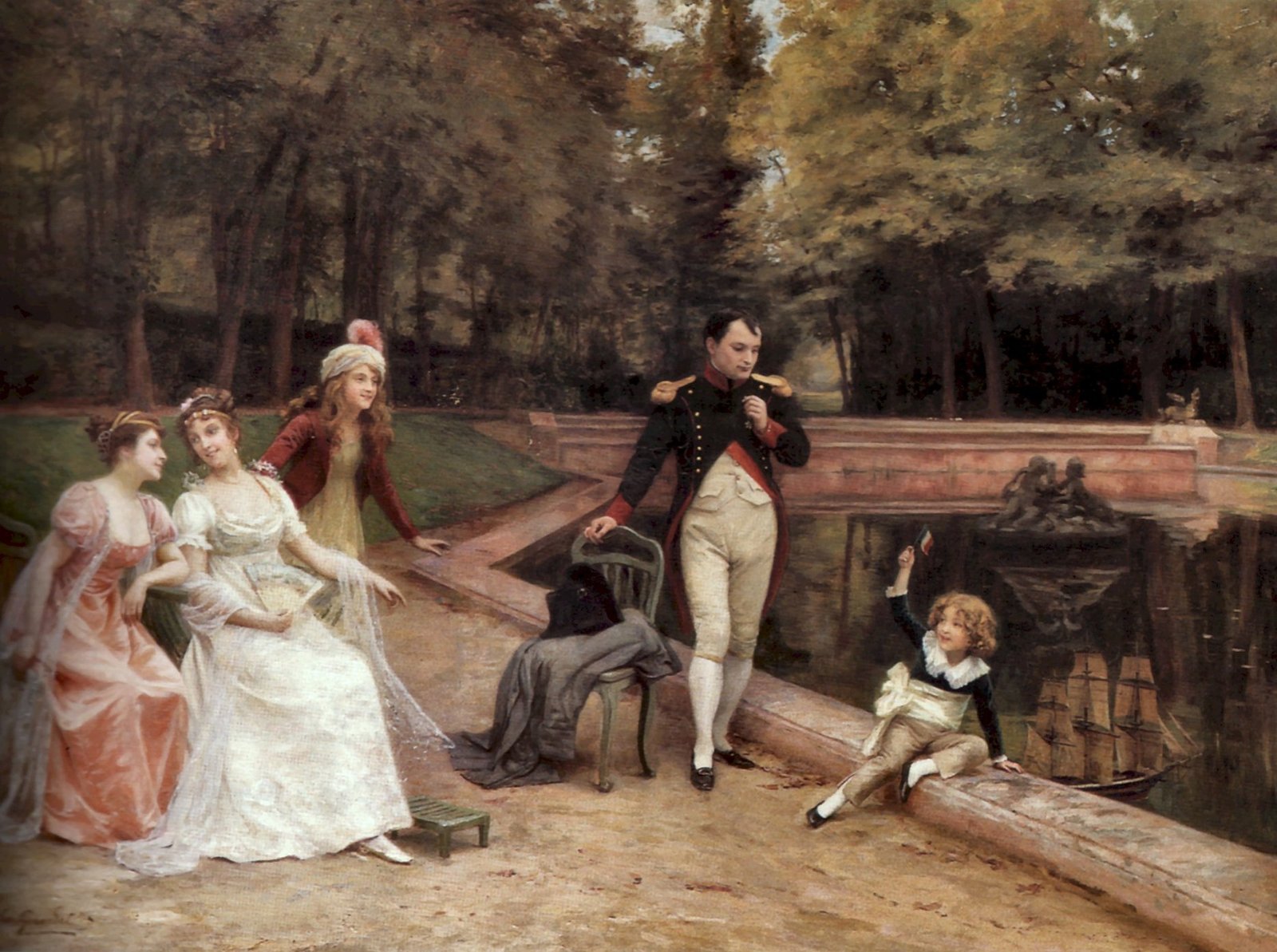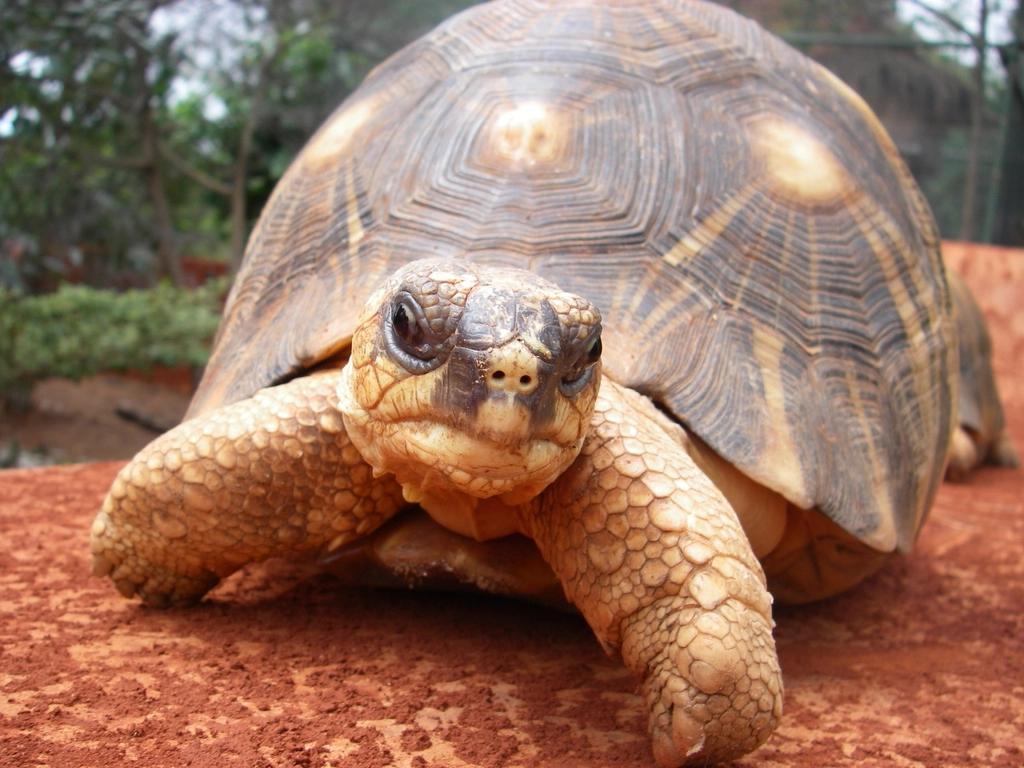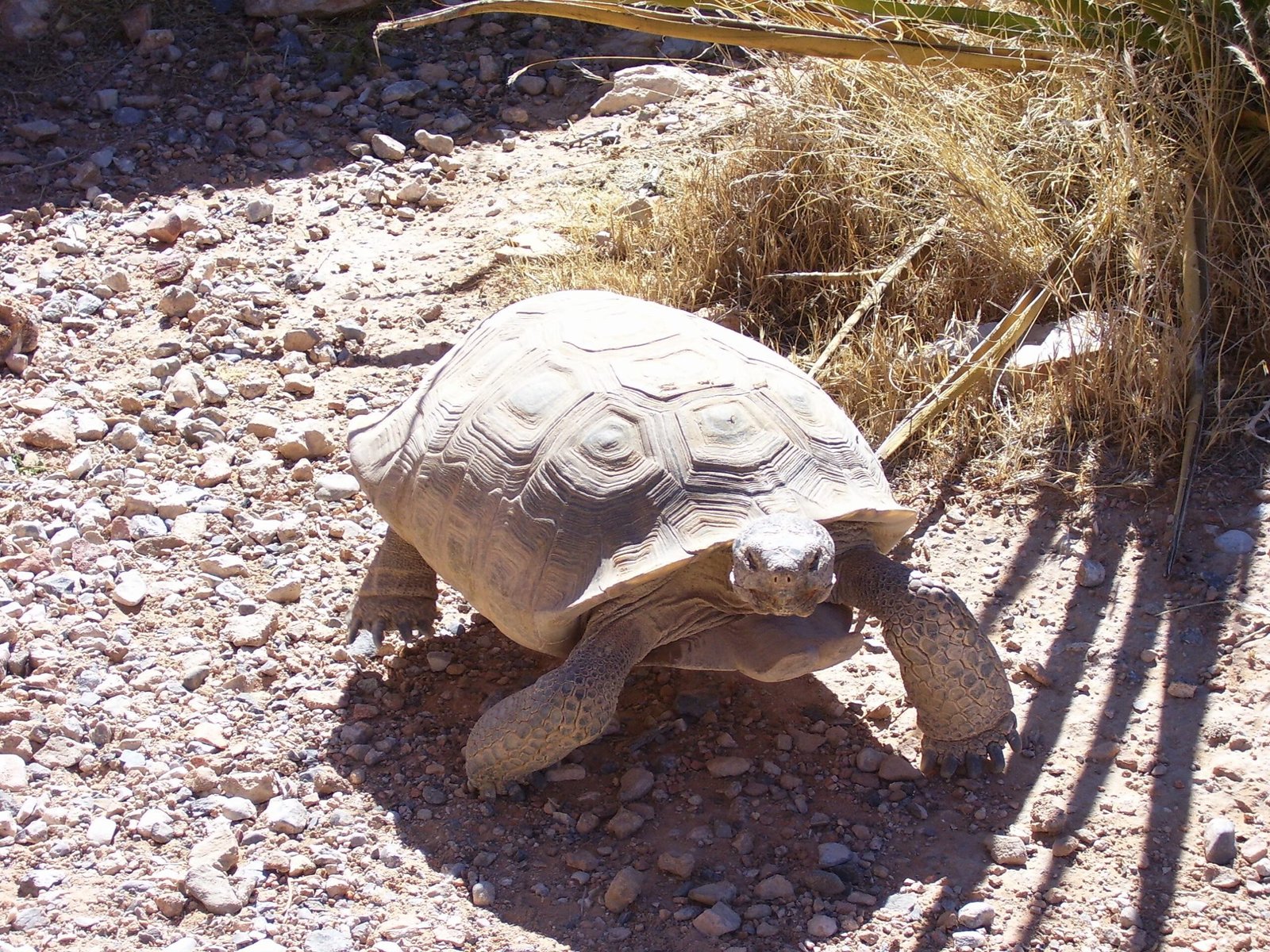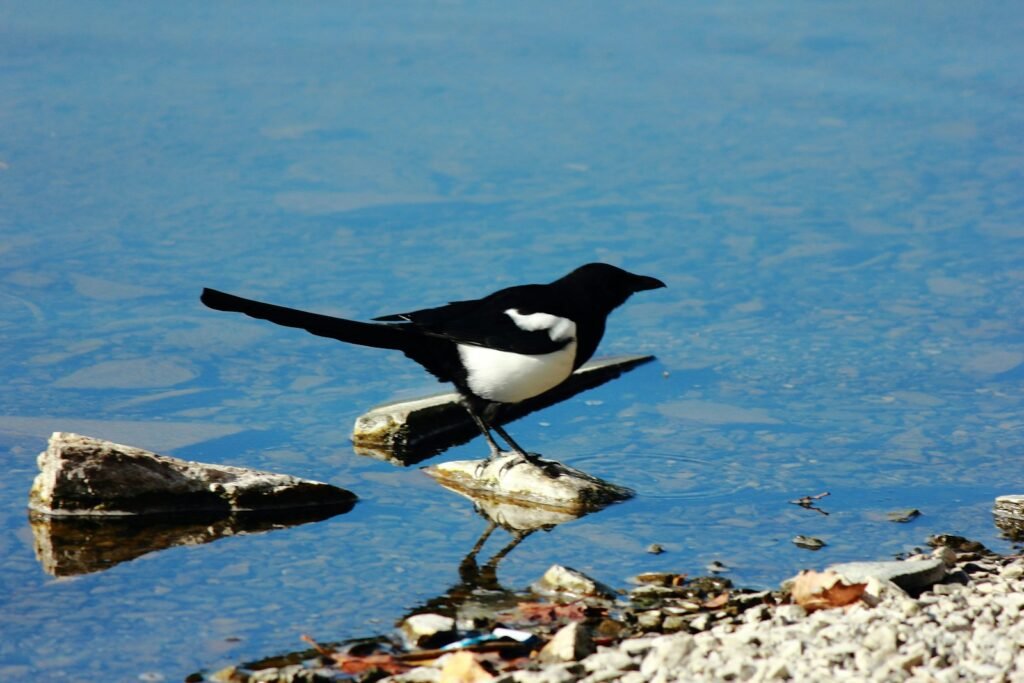In the annals of history, few tales are as enchanting as that of a creature who witnessed the rise and fall of empires, outliving some of the most iconic figures of the past. This is the story of a tortoise that not only defied the sands of time but also had the unique opportunity to meet one of history’s most famous personalities: Napoleon Bonaparte. This remarkable tortoise, believed to be nearly 190 years old, has seen the world change in ways most can only dream of. Its life is a testament to resilience and longevity, offering insights into the secrets of nature and the enduring spirit of life.
A Glimpse into the Past
Imagine a world where the clattering sound of horse-drawn carriages echoed through cobblestone streets, while the air was filled with the scent of coal and the chatter of people in elaborate attire. It was during this era, amidst the backdrop of the early 19th century, that our tortoise began its extraordinary journey. Born in a time when empires were expanding, and the world was on the cusp of modernization, this tortoise has become a living relic of history. Its story begins on a remote island, a place where time seemed to stand still, and nature reigned supreme.
Meeting the Emperor

The encounter between the tortoise and Napoleon Bonaparte is one shrouded in mystery and intrigue. Legend has it that Napoleon, during his exile on the island of Saint Helena, encountered the tortoise while exploring his new surroundings. Imagine the scene: the fallen emperor, pondering his legacy and future, crossing paths with a creature destined to outlive him and his empire. This meeting symbolizes the transient nature of human power and the enduring presence of the natural world. The tortoise, an unassuming witness to history, quietly observed as the world around it changed dramatically.
The Science Behind Longevity
The longevity of this tortoise is not just a matter of historical curiosity but also a subject of scientific fascination. Tortoises, particularly those from the Galápagos and Aldabra islands, are renowned for their extended lifespans. Scientists attribute this remarkable longevity to several factors, including their slow metabolism, efficient energy use, and ability to withstand harsh environmental conditions. Additionally, tortoises have a unique genetic makeup that allows them to repair cellular damage more effectively than many other species. Studying these creatures provides valuable insights into the science of aging and the potential for extending human lifespans.
Lessons from the Tortoise
The life of this ancient tortoise offers profound lessons for humanity. In a world that often prioritizes speed and progress, the tortoise reminds us of the value of patience and resilience. Its slow, deliberate movements serve as a metaphor for the importance of savoring each moment and embracing a more sustainable way of life. As we face challenges such as climate change and environmental degradation, the tortoise’s ability to adapt and survive in changing conditions inspires us to find solutions that prioritize longevity and harmony with nature.
The Role of Tortoises in Ecosystems

Tortoises play a crucial role in maintaining the balance of their ecosystems. As herbivores, they contribute to seed dispersal, promoting plant growth and diversity. Their grazing habits help shape the landscape, creating habitats for other species. Furthermore, tortoises are often considered “ecosystem engineers” due to their ability to influence the physical environment. By digging burrows and creating microhabitats, they provide shelter for various organisms. Understanding the ecological significance of tortoises underscores the importance of conserving these ancient creatures and their habitats.
Conservation Efforts
Despite their remarkable resilience, tortoises face numerous threats in today’s world. Habitat destruction, poaching, and climate change pose significant challenges to their survival. Conservation efforts are underway to protect these iconic creatures and ensure their continued presence in the wild. Organizations and researchers are working tirelessly to establish protected areas, implement breeding programs, and raise awareness about the importance of tortoise conservation. By supporting these initiatives, we can help safeguard the future of these remarkable animals and preserve the rich biodiversity of our planet.
The Tortoise as a Symbol

Throughout history, the tortoise has been a symbol of wisdom, perseverance, and longevity. Its presence in myths, folklore, and literature reflects its enduring significance across cultures. From Aesop’s fable of “The Tortoise and the Hare” to ancient creation myths, the tortoise embodies timeless virtues that continue to resonate with people today. As we navigate the complexities of modern life, the tortoise serves as a reminder of the enduring power of patience and the importance of staying grounded amidst the chaos.
The Legacy of an Extraordinary Life
As we reflect on the incredible journey of this 190-year-old tortoise, we are reminded of the profound impact that a single life can have on the world. This tortoise has not only witnessed history but has also become a part of it. Its legacy is one of endurance, adaptability, and quiet strength. By sharing its story, we can inspire future generations to appreciate the wonders of the natural world and strive for a more sustainable future. In doing so, we honor the legacy of a creature that has outlived empires and continues to captivate our imagination.
Conclusion: A Call to Action

The story of the tortoise that outlived an empire is more than just a tale of longevity; it is a call to action for us all. It urges us to re-evaluate our relationship with nature, to prioritize conservation efforts, and to cherish the rich tapestry of life that surrounds us. As we marvel at the resilience of this remarkable creature, let us also commit to preserving the beauty and diversity of our planet for generations to come. In doing so, we honor the legacy of the tortoise and ensure that its story continues to inspire and captivate the hearts and minds of people around the world.




